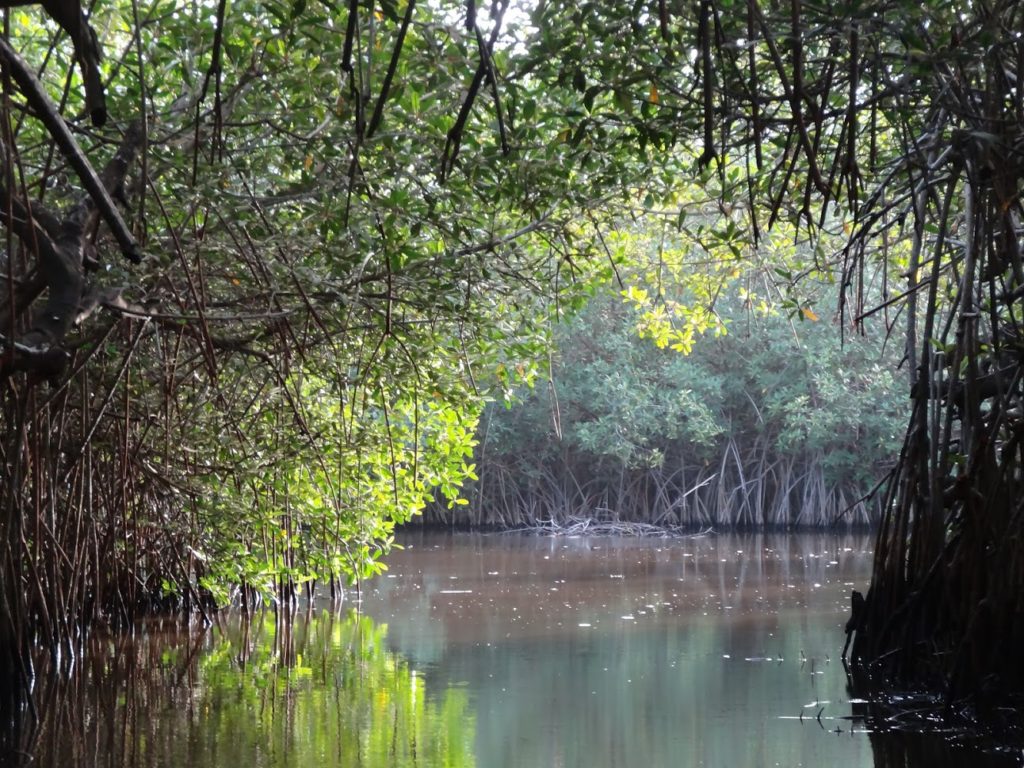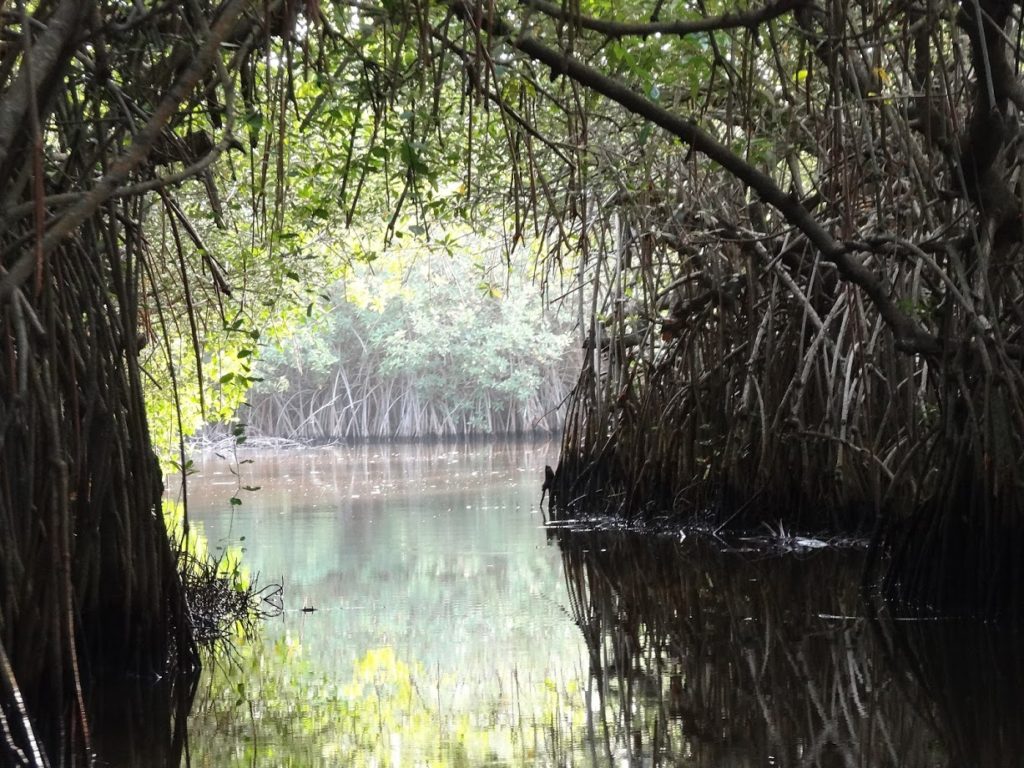Energy Assistance with the help of one of its beneficiaries has set up a first partnership in order to compensate the flights of its volunteers in terms of CO2.
To do so, Energy Assistance has developed a first partnership with one of its beneficiaries in Benin so that the contribution of the beneficiaries to the projects is made under a participative economy formula. The beneficiaries have committed to replanting 3.6 hectares of mangroves in order to create a carbon sink and protect biodiversity in the region.
Mangroves are one of the most productive ecosystems on our planet in terms of biomass and can store up to 100 kg (on average 40 kg) of carbon per m². This storage is partly in the wood of the trees, which is a dense wood, but mainly in the litter. Mangroves also have an essential role in terms of biodiversity because it is mainly there that a large part of the marine and brackish water species reproduce and form the at the base of the food chain. It should also be noted that mangroves are the most effective natural coastal protection system. With global warming and climatic hazards, this is not to be disregarded.
With 3.6 hectares EA compensates for about 1,500 tons or 30 flights per year over 20 years (A flight to Benin is about 2.2 tons of CO2 per passenger (considering the radiative forcing).
Other projects are under study and soon we will be able to offer our members to offset their private flights to help our beneficiaries develop a participatory economy and thus generate in the long term enough to maintain the facilities offered by EA with the support of its various donors including ENGIE.



